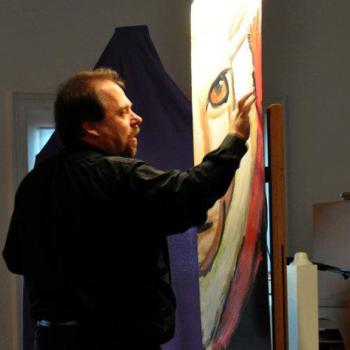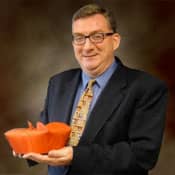There's an undeniable mystique about 16th-century England, an era peopled with colorful characters like Henry VIII, epic events like the Armada, the adventures of Francis Drake on the Spanish Main, the Reformation, and the heroic stand of St. Thomas More. An exciting if overlooked tale of heroism is the work of the Jesuits to keep Catholicism alive in 16th-century England. Hundreds of Englishmen trained abroad, their religion outlawed, returned home to restore the "old faith," facing certain death if caught. Many are listed today in the Roman martyrology.
For four decades, Ignatius Press has reclaimed many forgotten Catholic classics. One of these is Autobiography of a Hunted Priest, by Father John Gerard (1564-1637), an English Jesuit who spent eighteen years clandestinely ministering to his fellow countrymen. Born a Catholic in Derbyshire, young Gerard studied in Europe where he joined the Jesuit order. Founded in 1540, the Jesuits were the shock troops in the campaign to win Protestant Europe back to the Catholic faith.
Trained and ordained on the continent, Father Gerard secretly returned to England in the fall of 1588. Anti-Catholic hostility, exacerbated by the recent defeat of the Spanish Armada, was at a fever pitch: "Everywhere a hunt was being organized for Catholics and their houses searched; in every village and along all the roads and all along the roads and lanes very close watches were kept to catch them."
Catholics were forced to attend Protestant services or pay a fine. (Only the wealthy could afford to remain openly Catholic, although under intense pressure to convert.) Pope St. Pius V's 1570 bull Regnans in Excelsis exacerbated the situation by excommunicating Elizabeth and absolving her subjects from allegiance to her. Catholics were now seen as traitors to the realm. Jesuits were the subject of a special ire. Three years before Gerard's return, they were banned from entering the country. They were political fugitives.
To stay above suspicion, Gerard cultivated a respectable public image. For six years he traveled through England, staying in the homes of wealthy Catholics, the safest place available. Here he posed as a visiting relative while secretly celebrating the sacraments. But even in these homes there was the risk of the "priest hunters" appearing. Some of the most heroic figures in Gerard's book are the laypeople who kept the faith alive at great risk, harboring clergy in secret passages known as "priest-holes." (Gerard hid in one for four days with nothing but a biscuit for food.)
Betrayed by a servant, Gerard spent three years in prison. (All Catholics, he notes, lived in constant fear of betrayal.) Some of the book's most interesting passages cover this period. He spent an entire month in chains doing the Spiritual Exercises of St. Ignatius from memory. He describes the many uses for an orange. From the peel he made a rosary, while using the juice to write letters legible only when heated (so the recipient would know if the letter had been intercepted). Sometimes he bribed the guards to look the other way while he celebrated Mass and conducted retreats for his fellow prisoners.
Through it all, he writes, he was entirely ready to "water the Lord's vineyard" with his blood. For six months he stayed in the Tower of London, Elizabethan England's version of a maximum security prison. It was here that he underwent torture, an experience he describes in detail:
The chamber was underground and dark, particularly near the entrance. It was a vast place and every device and instrument of human torture was there. They pointed out some of them to me and said that I would try them all. Then they asked me again whether I would confess. "I cannot," I said.
On October 3, 1597, with the help of friends, Father Gerard escaped from the Tower of London. For the next eight years he continued his ministry among the English people before he was recalled to the continent to train Jesuits for the English Mission. He spent the rest of his life at the English College in Rome. Toward the end of his life, Gerard's Jesuit superiors asked him to write a memoir of his work in England, which he did, in Latin. Translated into English in 1871, the present edition was re-translated by the English Jesuit historian Father Philip Caraman.
In his preface to the new edition, Father James V. Schall, a Jesuit at Georgetown University, calls it "an ecclesiastical adventure story with a rather happy ending." At a time when Christianity is undergoing new persecutions worldwide, Father Schall notes, "It may, in fact, be a very up-to-date book in its own way." If you're looking for a good read, or if you're looking for a great Christmas present to give someone, you can't do better than this.
12/2/2022 9:05:40 PM





